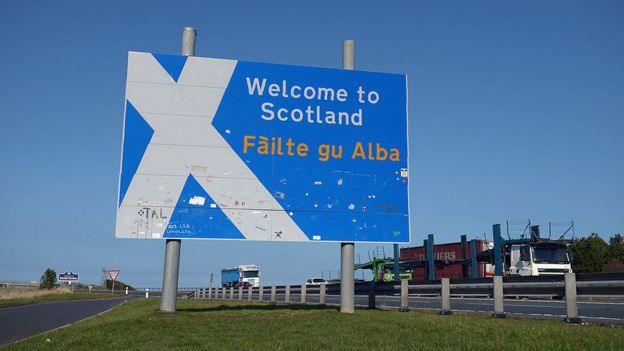'You can't close Scotland's border when we live on both sides'
- Published
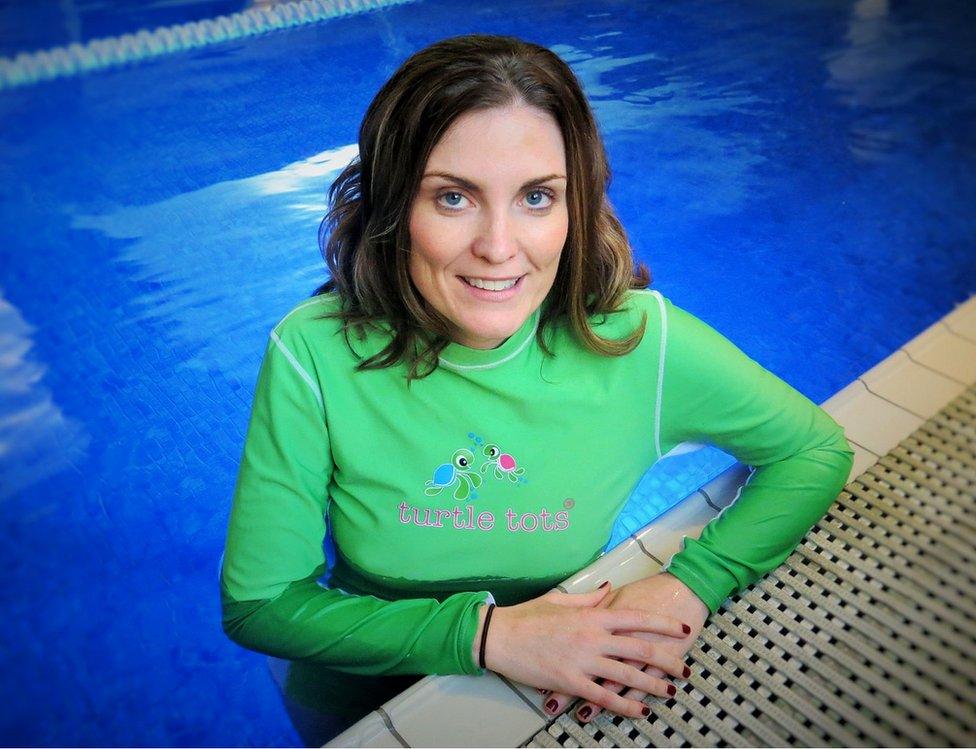
Vicky Muirhead's business is split across the Scottish border
People who live and work across the Scottish border say they are worried about talk of closing it to limit the spread of Covid-19.
Many residents of Dumfries and Galloway and Cumbria live their lives on both sides of the border.
They shop over the border, see family on the other side and go to work in the opposite UK country.
The issue has emerged since Scotland's infection and death rate began falling at a faster rate than in England.
On Sunday, Nicola Sturgeon said on The Andrew Marr Show, that quarantine for visitors from elsewhere in the UK could not be ruled out.
She said the Scottish government had to make sure it was not seeing the virus come in from other parts of the UK.
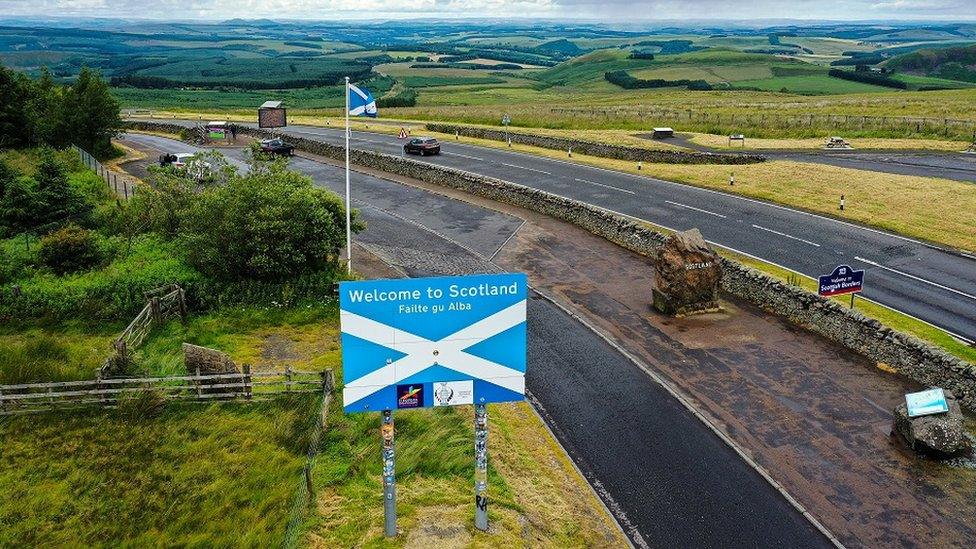
But for Vicky Muirhead, nipping into England and back is a way of life.
Ms Muirhead from Gretna owns two branches of a children's swimming franchise, Turtle Tots Dumfriesshire and Turtle Tots Cumbria.
At the moment she is preparing to reopen the same business but in two different locations with two different sets of rules.
She told the BBC: "We closed on the second week of March and we are still no further forward on the Scottish side. On the English side it is slightly more positive because there is a date on when pools and gyms can reopen. So we are working towards that now.
"The only difference normally is we run different term dates because of school holidays. But with this there are just two completely separate guidelines. You can do one thing one side of the border but not the other. In Scotland children don't have to social distance, in England they still do but we have a date to reopen."
'You spend as much time either side of it'
Ms Muirhead says it is something people living close to the border are concerned about.
She said: "Even if you don't own a business the chances are you work across the border or you cross the border to socialise, or do your shopping. When you are rural and this close to the border you spend as much time each side of it."
She does not not think there is a practical way to stop people moving from England to Scotland and vice versa.
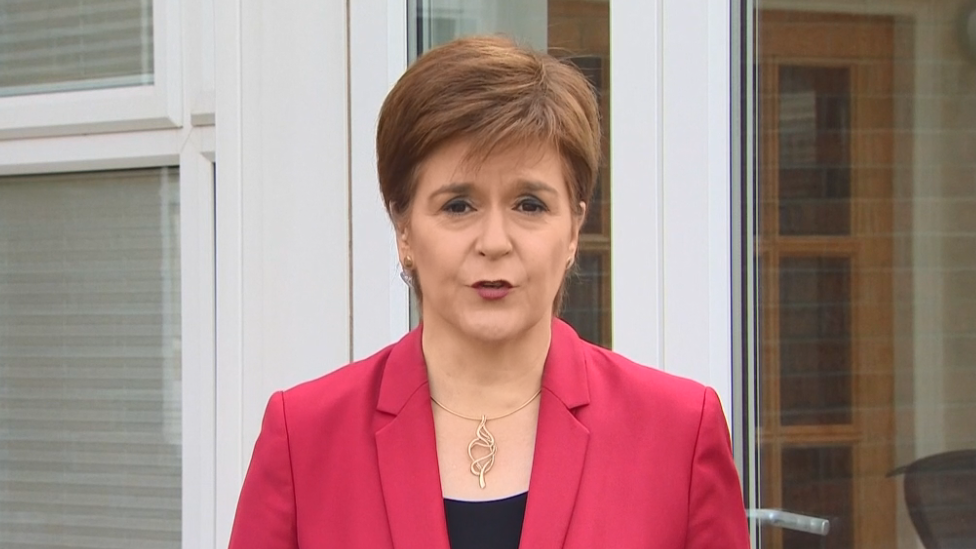
The first minister told Andrew Marr that any further restrictions would be based on the risk of importing coronavirus cases
She said: "How would that look? How do you police it? If it comes to a strict border control it brings up issues in everything we do. The majority of people will cross the border to go shopping. To do anything leisurely, you cross the border and go to the next town, the next city and that is Carlisle. That's where our amenities are.
"And I look at my social group of friends - of nine of us, seven work across the border, two are nurses, one is an NHS administrator, another is a social worker - what are the practicalities of frontline staff getting back and forward, the time and the money it would cost to police that?"
'Not political'
At Prime Minister's Questions, Boris Johnson described the idea as "astonishing and shameful".
However, Nicola Sturgeon insists it is not a political issue and believes the UK nations need to work together on outbreak management in a way that "mitigates against having to put any border restrictions in place".
She said: "That's not political. It's not constitutional. It's just taking a similar view to countries across the world in terms of protecting the population from the risk of the virus."
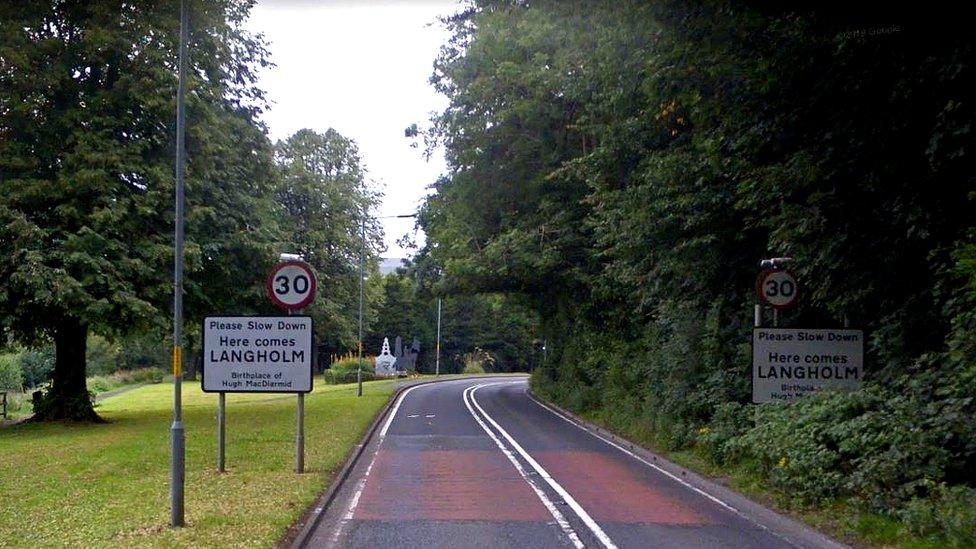
A large part of the population of border town Langholm travels into Carlisle to work
Mark Hodgson is a local community councillor in Langholm, which has many residents who work over the border. He says the community is split.
"Carlisle is only 20 miles away and half the population works there. That's where the economy is," he said.
"But all our deliveries come in from England and there have been issues in local shops when delivery drivers refuse to wear masks. It is split between those who have to move across the border economically and those worried about the virus coming in."
Mr Hodgson believes the idea of closing the border will disappear as long as there are no big outbreaks.
He said: "I can't see a practical way to close the border unless there was a physical barrier and I can't see that happening unless there is a really big outbreak in which case we would go along with any necessary measures."

Graham Main says making the divide national would be damaging
Graham Main is the festival director for The Big Burns Supper in Dumfries. He is from the Scottish town, his family is there, but he lives in Carlisle with his husband.
He believes the first minister is trusted by both people in the south of Scotland and the north of England.
He describes the area as a "delicate little ecosystem" which shares skills and economies.
He can't see how a hard border could be implemented.
"There is a suggestion Carlisle may be one of the places that requires a local lockdown but it can't be a national division. Maybe the two regions just disconnect for a while and we use a different route," he said.
"Dumfries and Galloway has done the local lockdown and I think we are more prepared for something like that."
- Published13 July 2020
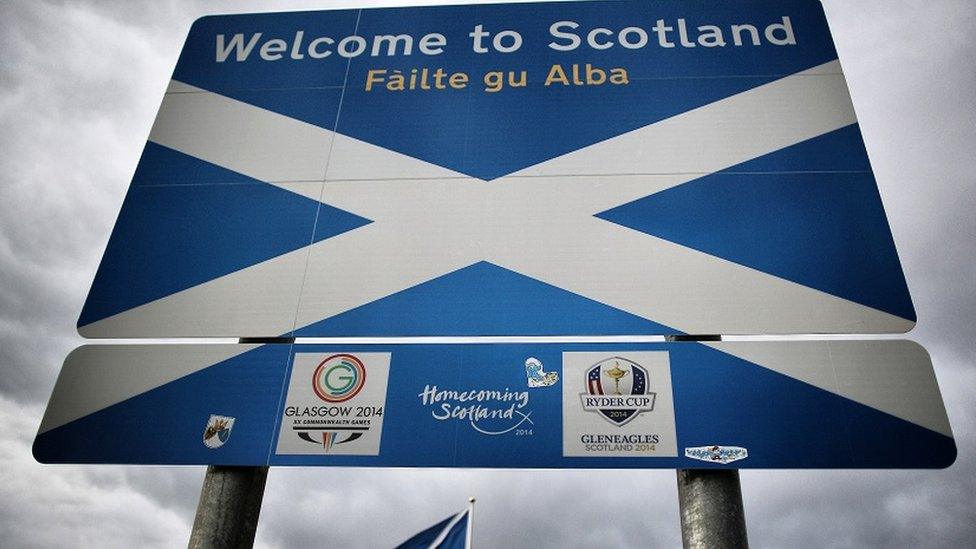
- Published1 July 2020
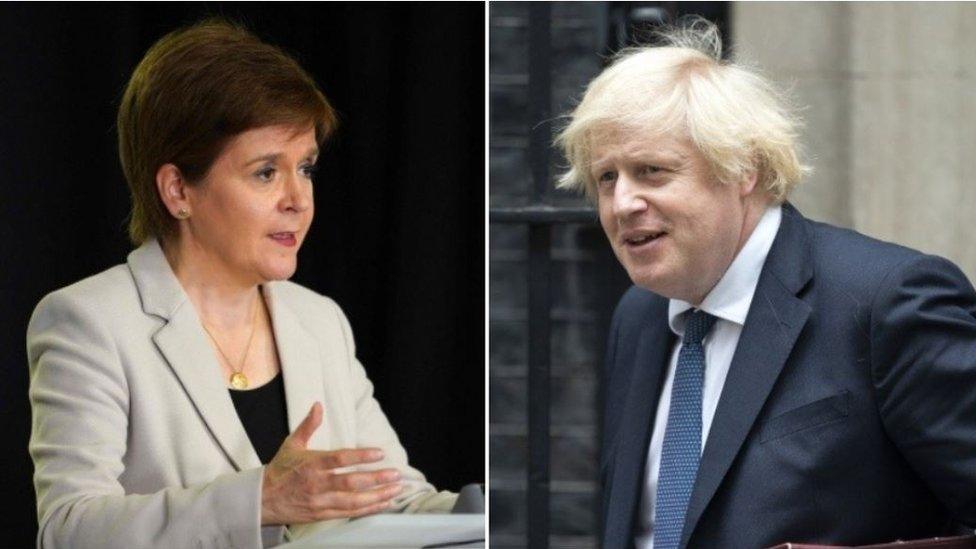
- Published12 July 2020
